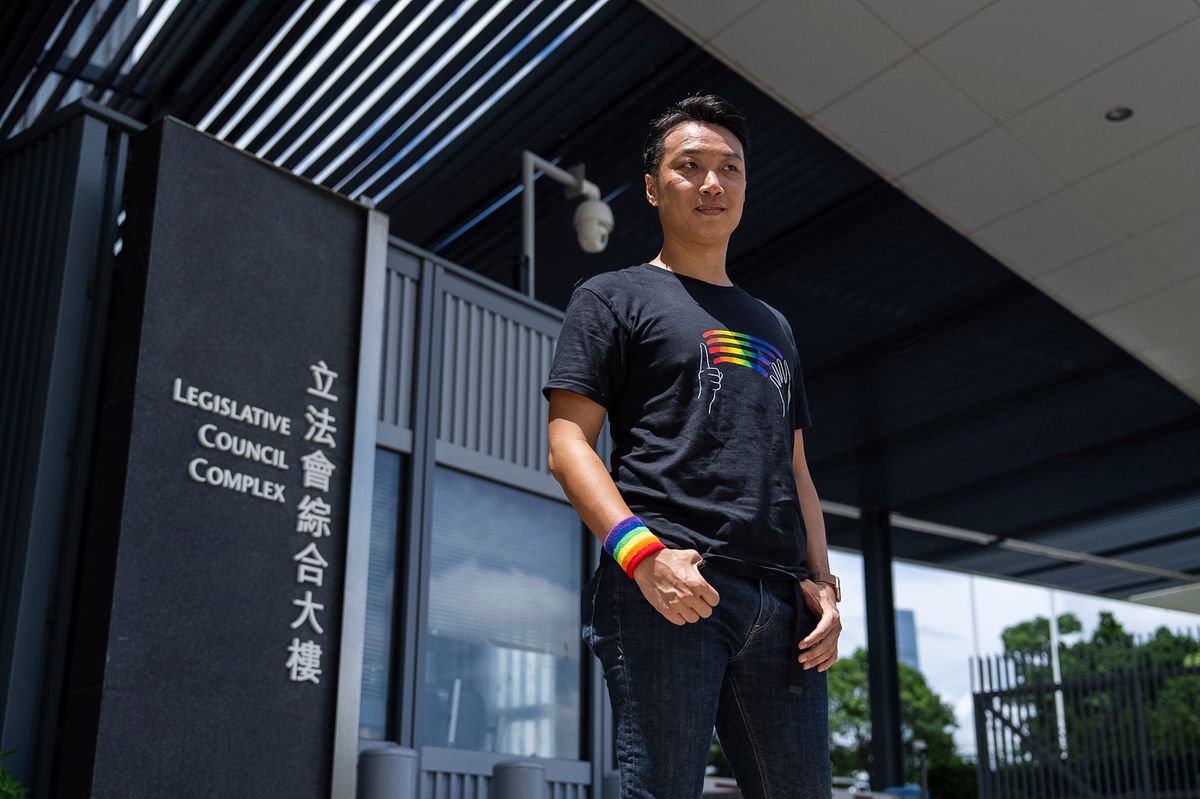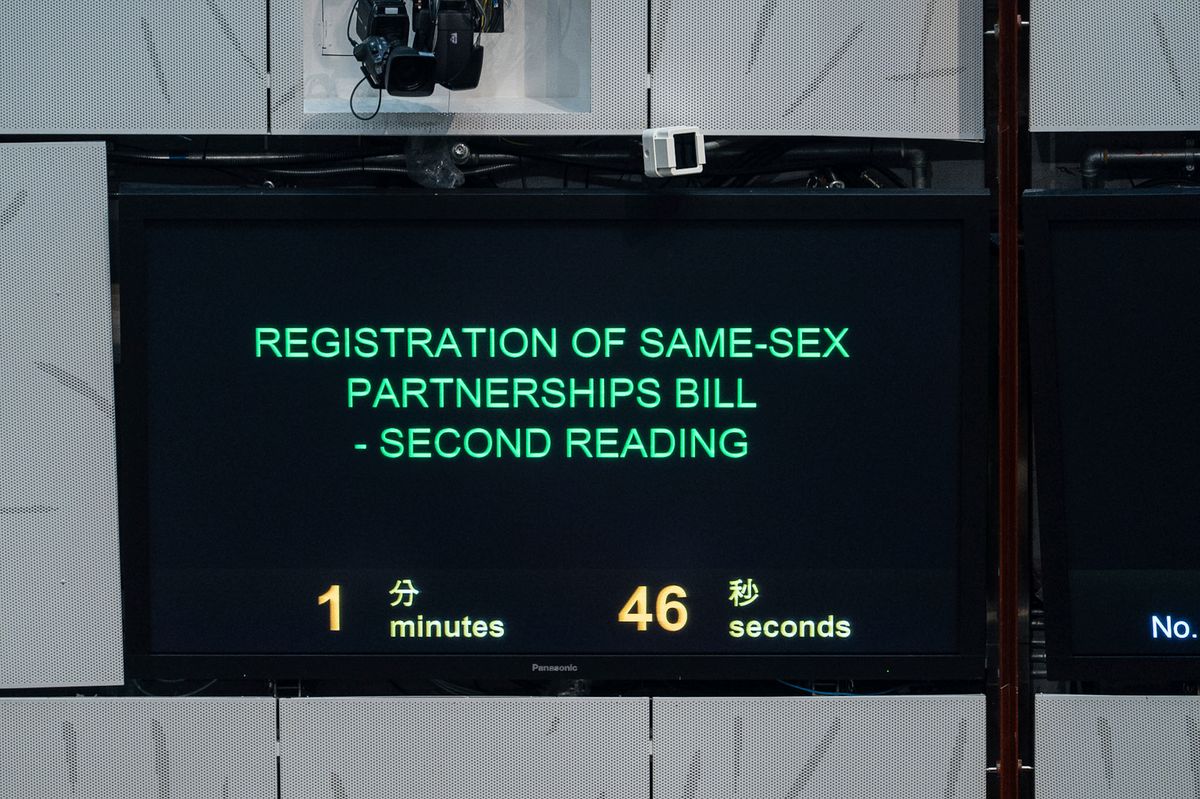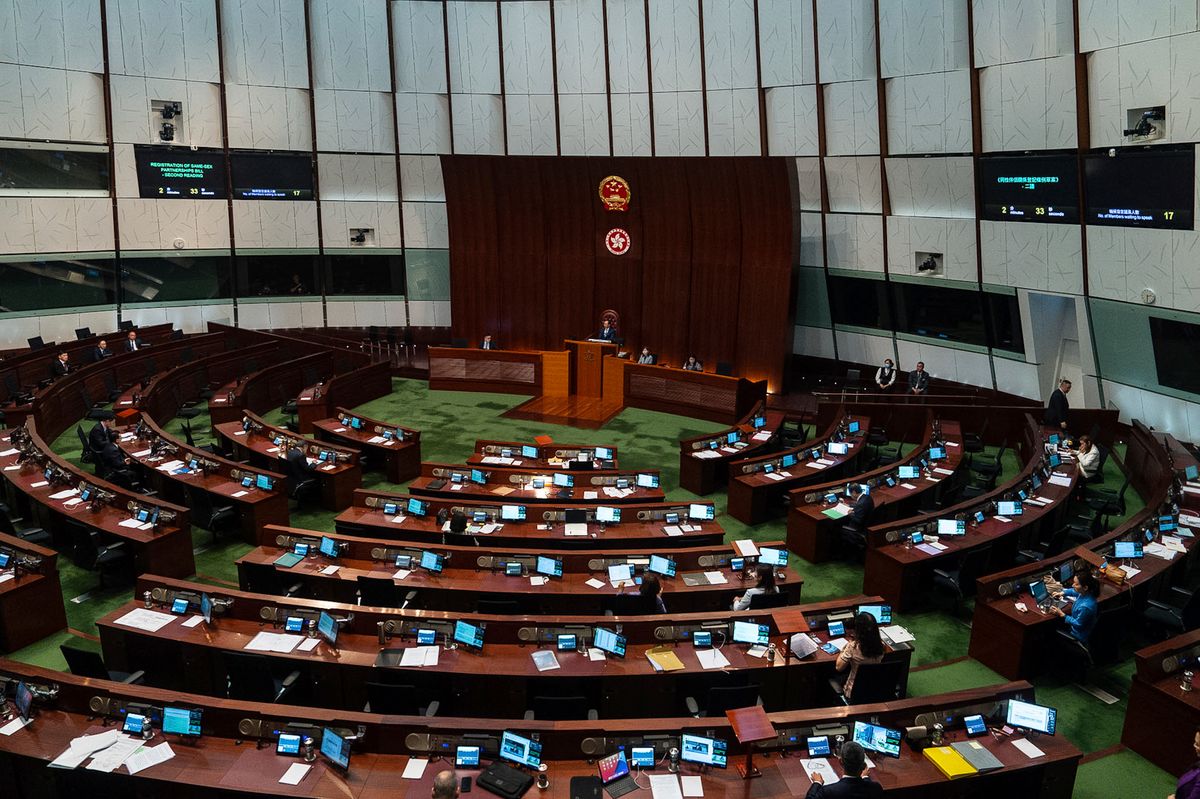HONG KONG (AP) — Hong Kong lawmakers on Wednesday voted down a bill that would have granted recognition to same-sex partnerships in the Chinese city, despite the rights offered being limited, in a major setback to the LGBTQ+ movement.
The Registration of Same-Sex Partnerships Bill, unveiled in July, stemmed from one of the legal victories that pushed the government to offer more equal rights to gays and lesbians. However, the bill met fierce opposition from lawmakers, even though it followed the top court’s 2023 ruling stating the government should provide a framework for recognizing such relationships.
Out of the lawmakers who attended the meeting, 71 voted against the bill, 14 approved it and one abstained.
The staunch opposition from lawmakers was a rare sight despite the Chinese government’s overhaul of the electoral rules of the territory that effectively filled the legislature with Beijing loyalists. It was the first government bill to be voted down since the overhaul.
Resistance in the legislature
The bill had proposed to allow residents who have already formed unions overseas to register their partnerships locally and to grant them rights in handling medical and after-death matters for their loved ones. That included the ability to access their partners’ medical information and participate in medical decisions with consent, and claim their deceased partners’ remains.
Some lawmakers suggested using individual policies or administrative measures to resolve the challenges facing same-sex couples, instead of through such legislation. Others insisted voting down would not amount to a constitutional crisis and would instead show the legislature is not a rubber stamp.
Lawmaker Holden Chow from the city’s biggest pro-establishment party said that the bill’s passage would mean opening “a Pandora’s box,” and “subverting Hong Kong’s marriage system between one man and one woman.”
Another legislator, Junius Ho, said the bill would cause the entire society to become restless for the sake of a small group of people.
Lawmaker Regina Ip, who supported the bill, likened it to a “minimum spending” requirement, given the rights offered were limited.
Outside government headquarters near the legislature, two women laid out a banner supporting the traditional marriage system.
Rights advocates left disappointed
Many gay rights advocates in Hong Kong were already unsatisfied with the draft bill as its proposed registration system was only available to those in registered overseas unions. Still, they expressed frustration over its rejection.
Activist Jimmy Sham, whose legal challenge led to the 2023 top court ruling on same-sex partnerships, told reporters after the vote he had expected the outcome. He said he hoped the government would in the future pass legislation that fulfills its constitutional duty toward the LGBTQ+ community.
“I hope today marks a beginning we haven’t yet stepped into, rather than an end,” he said, adding he would study how to follow up on the matter with his legal team.
Nick Infinger, who had won a separate legal challenge to seek equal rights for same-sex couples, was also let down by the results. “Just do not give up,” he said.
Hong Kong Marriage Equality, a nongovernmental organization that focuses on fair treatment for same-sex couples, said the rejection sent a troubling signal to local and international communities that “court rulings may be disregarded and the dignity of individuals overlooked.”
It earlier argued that the results of public opinion submissions — which the government previously reported as 80% opposing the bill — did not accurately reflect public sentiment. It noted that about half the publicly viewable submissions against the bill used standardized templates, which suggested “strong mobilization by specific groups.”
Next steps are uncertain
Hong Kong’s top court ruled in 2023 that the government should develop a framework for recognizing same-sex partnerships by October.
Erick Tsang, the secretary for constitutional affairs, told reporters that while the government felt disappointed with Wednesday’s outcome, it would respect the lawmakers’ decision.
Surveys showed 60% of respondents supported same-sex marriage in 2023, up from 38% in 2013, according to a report by researchers from three universities.
Tsang said the administration won’t ask the top court for an extension to the two-year deadline, but his team will further discuss with the Department of Justice how to move forward.
The growing acceptance came as multiple legal challenges won more equal rights for same-sex couples, ranging from dependent visas to subsidized housing benefits. On Tuesday, the Court of First Instance ruled in favor of a lesbian couple’s parental recognition of their son born through reciprocal in vitro fertilization.
Nadia Rahman, Amnesty International’s researcher on gender, urged authorities to introduce a revised bill to protect the rights of same-sex couples in full compliance with the court’s ruling.
On Wednesday night, performance artist Holok Chen gathered members of the queer community to embroider on a rainbow flag to reflect their grievances. Other LGBTQ+ groups also hosted similar activities, Chen said, and they plan to display the rainbow flags they embroidered in a show of unity later this month.
Chen pointed to the communal nature of embroidery, saying, “It’s a gentle yet powerful form of resistance.”
By KANIS LEUNG
Associated Press





